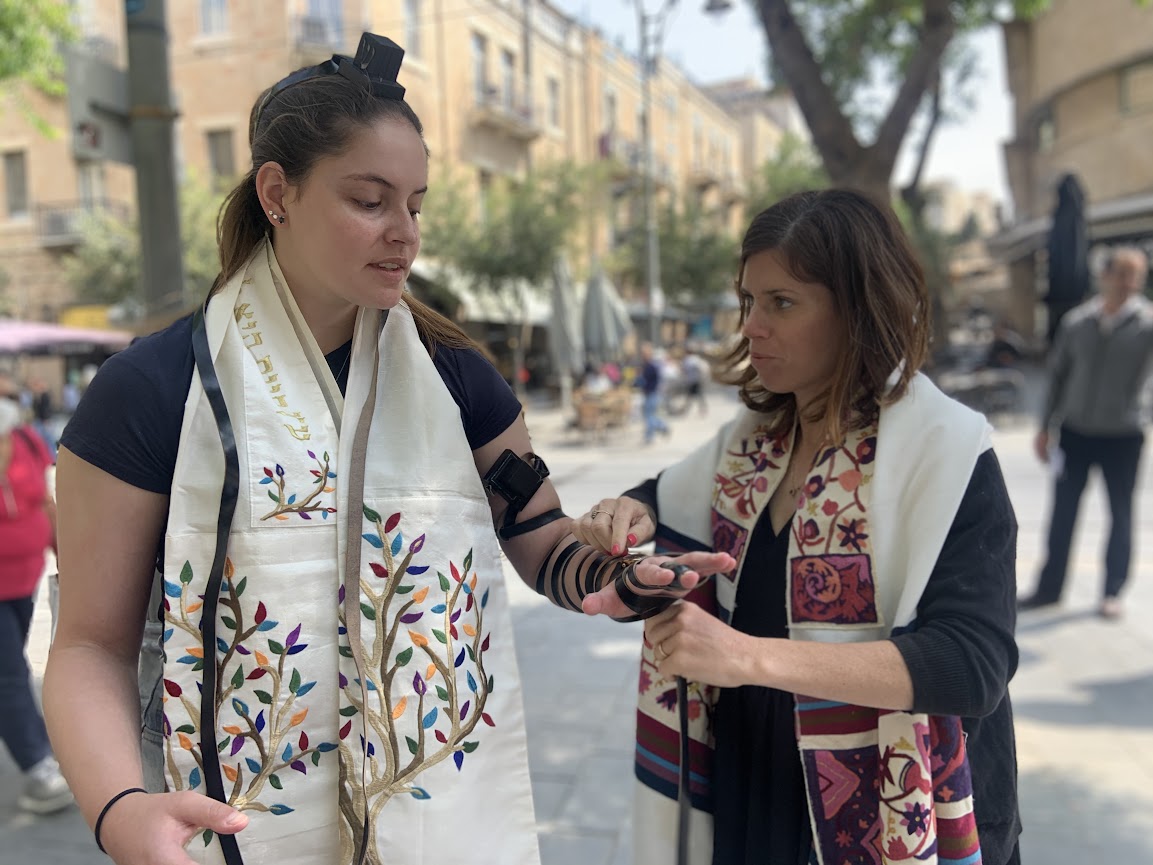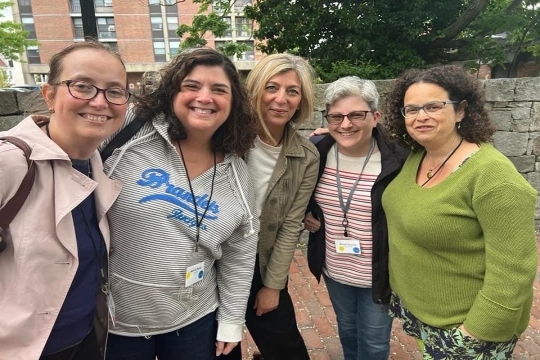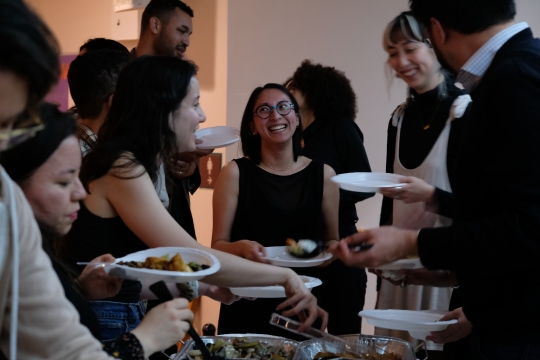
Today in Israel, most people are only exposed to one kind of Judaism, and in my school, we believe students should be knowledgeable about diverse kinds of Judaism. At the secular high school I teach at in Tel Aviv, we offer a seminar called “Shades of Judaism.” This is in addition to our standard curriculum. As part of this program, we host a variety of Jewish leaders representing different streams, communities, and traditions. The idea behind this program is for students to learn about and interact with the different faces of Judaism. Recently, we had the pleasure of hosting Yochi Rappeport, Executive Director of Women of the Wall (WOW), for one of these lectures.
Our collaboration with Yochi and WOW began a few years ago. As many of your members know, WOW is a recipient of a WRJ YES Fund grant. Thanks to this generosity, WOW can support multiple programs and share their curriculum with wider audiences. Hearing about Women of the Wall and opportunities for women in Jewish leadership was new for the students and many teachers. As a secular school in Tel Aviv, we are careful with what Jewish content we teach our students. Parents are wary of past experiences where their child(ren) were taught things that didn’t align with their liberal values. Therefore, for this seminar, we tried to keep the content balanced, exposing students to as many opinions as possible and ensuring they understand that no one side holds all the truth.
Yochi began the lecture by sharing some of her personal journey and path to finding her place in Judaism. Questions of what women “can” and “can’t” do, historically in Judaism, led to an explanation of the fight for equality at the Kotel (Western Wall). Listening to Yochi speak, the students were shocked by the current situation regarding women’s rights at the Kotel. They could not believe that this was current news rather than an already-won civil rights movement from the 20th century.
Most students could not believe that such violence is carried out against women simply because they want to pray differently than the ultra-Orthodox. I was proud to see that the boys and girls were equally enthralled. It became clear to the participants that if women and girls cannot participate in Judaism freely, we suffer as a community. Many expressed their willingness to become involved in the struggle for equality at the Western Wall.
In addition to speaking about the situation at the Kotel, Yochi also taught part of Women of the Wall’s new curriculum, called Sacred Feminism. This is designed to teach students about the history of women in halacha (Jewish Law) and how women have participated in Judaism throughout the ages. Most Israelis grow up seeing men as the representatives of what religious life looks like, and therefore do not associate women with religious leadership positions.
Teaching from the Sacred Feminism curriculum was an opportunity for Yochi to elaborate on what Women of the Wall is fighting for — the right to pray out loud in a group, the right to wear tallit and tefillin (garments worn for prayer), and the right to read from a Torah scroll. By teaching about these mitzvot (commandments) throughout the ages, students were able to connect with and understand why these goals are still so important today. Participants were also able to share their own connections and experiences with these traditions, which was a lovely way to make the situation relevant.
Yochi’s lecture helped bridge many gaps for my students— between tradition and modernity, exclusion and pluralism— while instilling the idea that all Jews should be represented at our holy places. I am proud that my school offers the students a range of religious Jewish identities. Hearing Yochi unpack the history behind many of the halachot, while explaining to the students that its limited interpretation has restricted women’s access for so many years, not the halachot themselves, was inspiring. As a result, the students could look at this issue through a new lens— one that is often not considered. With the role of Women of the Wall’s engagement with the youth of Israel, educators like me have hope for the future generation.
For this piece, Yochi Rappaport, executive director of Women of the Wall, added her thoughts about the impact of WRJ’s YES Fund:
"The WRJ YES Fund grant allows us to provide programming throughout the year in addition to our monthly Rosh Chodesh services. At our shofar-blowing workshop before Rosh Hashanah and Yom Kippur, tens of women learned how to blow the shofar and were able to blow the shofar for their communities on the holidays. We also held a Torah-reading class that allowed thirty women to learn how to read the Torah portion for Simchat Torah. Aside from the holiday-related activities, we meet with thousands of students every year to talk about Women of the Wall and women in Judaism. These presentations expose students to the diversity of Judaism and that there is more than one way to live a Jewish life."
The impact of YES Fund grants reaching beyond the funded organization and into other aspects of Israeli culture shows how meaningful and needed this support is. These partnerships are made possible by the generosity of WRJ and its YES Fund- reaching future generations of Reform Jews.
Related Posts

“How good it is — when sisters dwell together!”

LUNAR: Simply Remarkable - An Ongoing WRJ YES Fund Partnership
75d5.jpg)
